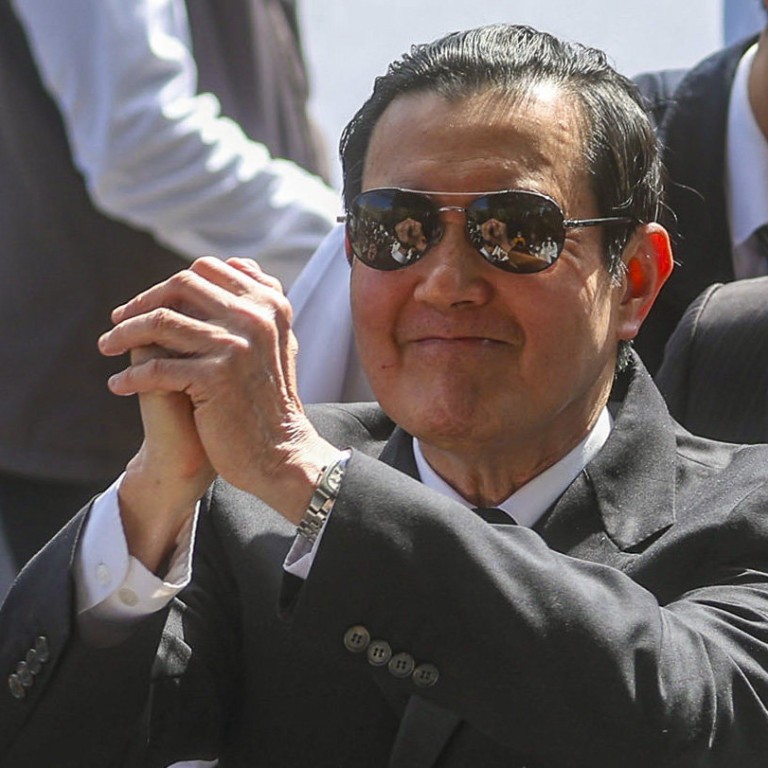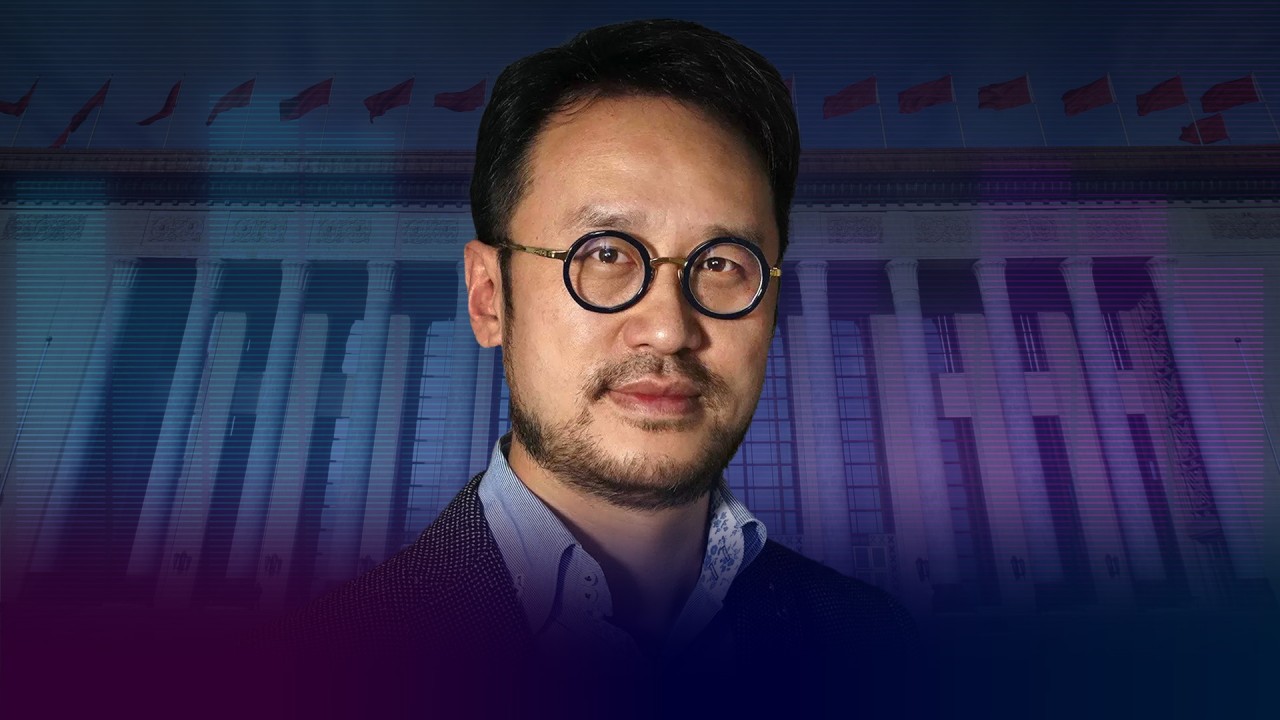
Ancestral trip or political ploy? Ma Ying-jeou to visit mainland China
- Former Taiwanese leader will be referred to as ‘Mr’ – not ‘former president’ – when he goes to the mainland next week
- Pro-independence critics on the island call timing and purpose of trip an ‘unthinkable’ sell-out
The debate centres on whether Ma’s visit could help improve spiralling cross-strait relations or merely add window dressing to Beijing’s attempt to annex the self-ruled island, according to observers on the island.
Australia ‘absolutely not’ promised US help for Taiwan war in Aukus deal
On Wednesday Honduran President Xiomara Castro sent the country’s foreign minister to Beijing to “promote” the establishment of diplomatic ties, signalling the end of 82 years of formal relations with Taiwan.
Under Beijing’s one-China principle, Honduras – one of only 14 countries that recognises Taiwan, must sever its ties with the island to establish official relations with China.
Ma will lead a delegation of about 30 students and several of his former aides to Nanjing on Monday for a 12-day visit that will also include stops in Wuhan, Changsha, Chongqing and Shanghai, according to the Ma Ying-jeou Foundation.
Beijing’s Taiwan Affairs Office welcomed Ma’s visit and offered to help, saying his trip would help “strengthen exchanges of young people and add fresh vitality to the development of cross-strait relations and peace”.
It also said that planned stops to pay respects to ancestors during the annual tomb sweeping festival was a “shared tradition” for people on either side of the strait.
“We are willing to provide all necessary help for Mr Ma Ying-jeou to visit and wish him a smooth journey,” spokesman Ma Xiaoguang said on Monday.
The visit has drawn intense scrutiny as Ma would become the first former Taiwanese president to visit the mainland since the defeated Nationalists, or Kuomintang (KMT), fled to the island in 1949 and set up an interim government.
Taiwan must consider ‘influential’ firms in trade talks, US out to ‘cut red tape’
The island’s pro-independence camp has harshly criticised the plan, suspecting that Ma might sell out Taiwan during his trip if not willingly become Beijing’s pawn in what they worried was a “united front” ploy against the island.
“As the Chinese communists have continued to ramp up pressure on Taiwan, including staging military drills to intimidate us and wooing our allies, as in the recent case of Honduras, it is totally unthinkable that Ma would make such a visit,” said Chang Chih-hao, a spokesman for the independence-leaning Democratic Progressive Party (DPP).
“Being a former president, Ma should have a high degree of political sensitivity to know that those actions would not only hurt Taiwan but also the feelings of its people,” Chang said.
DPP lawmakers have also slammed Ma for choosing to fly round trip on Beijing’s flag carrier Air China, and for agreeing to allow his mainland hosts to address him as Mr Ma Ying-jeou rather than as the former president – an arrangement they called “highly improper and undignified”.
Ma’s planned visits to historic war sites related to the establishment of the Republic of China (ROC) have also sparked anger among legislators.
“The places and museums he plans to visit feature only the history of the KMT in exile to Taiwan. There is nothing anti-communist, but many are anti-Japanese,” said DPP legislator Lo Chih-cheng.
China’s Xi vows ‘peaceful’ Taiwan ties as caution marks tone from Beijing
Lo said that Ma’s visit to a museum that features historic archives showing the ROC was founded in 1911 and ended in 1949 was evidence that Beijing wanted to use the trip to highlight the end of the ROC on the mainland.
“China obviously wants to create the impression that as President Tsai is having an important visit in the US, a former leader from Taiwan is making an ice-breaking trip in mainland China,” DPP legislator Wu Szu-yao said, adding that Ma was allowing Beijing to use him as a pawn against the Tsai government and the US.
But Ko Wen-je, head of the opposition Taiwan People’s Party and a former Taipei mayor, said Ma had framed his trip as an ancestral visit, not a political one.
“It is incredible for him to be accused of selling out Taiwan and complying with Beijing’s united front ploy even before he starts the journey,” Ko said.
Ma’s office has also played down the political overtones of his trip, insisting the purpose is to pay tribute to Ma’s ancestors and promote student exchanges and increase understanding.
“There is no itinerary in Beijing and no meeting with mainland leaders, including Mr Xi Jinping,” said Hsiao Hsu-tsen, executive director of the Ma Ying-jeou Foundation.
But a visit by Ma could help alleviate the cross-strait stalemate that has existed since Tsai was elected president in 2016 and refused to accept the one-China principle, according to one analyst.
“If the DPP is unable to help ease cross-strait tensions, why cannot others try?” asked Shih Cheng-feng, an emeritus professor of political science at National Dong Hwa University in Hualien, Taiwan.
He said Ma’s policy of engagement with Beijing – both as leader of Taiwan and the KMT – had won approval on the mainland.
“Ma’s mainland visit could help ease the expected anger from Beijing over Tsai’s transits in the US,” Lo said, adding that would help Washington.
As for the impact of Ma’s visit on the KMT, which has given its blessing on the trip, Lo said it would depend on what Ma said and did during his trip.
Grace Woo, a close aide of former Taipei mayor Ko, said Ma could use his trip to prove that his version of the “1992 consensus” was still applicable to the KMT, given that the mainland no longer kept the separate interpretation part in its reference to the understanding.
In 1992 in Hong Kong, the two sides verbally agreed on two concepts of China – the People’s Republic of China for Beijing, and the Republic of China for Taiwan. However, over the past few years, Beijing has insisted on just one China as a political basis for the two sides to continue exchanges and talks.



